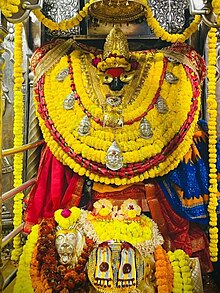The Journey of the Soul: Reincarnation and Karma in Hindu Thought
[ad_1]
The Journey of the Soul: Reincarnation and Karma in Hindu Thought
Throughout history, the concept of the soul’s journey has captivated the human imagination, offering profound philosophical and spiritual insights. In Hindu thought, this journey is intricately linked to the principles of reincarnation and karma, forming the bedrock of a worldview that evaluates moral actions and the evolution of the soul over time. This article explores the nuances of these concepts and their significance in Hindu philosophy.
The Nature of the Soul (Atman)
At the core of Hindu thought is the belief in the soul, known as ‘Atman.’ The Atman is considered eternal and unchanging, transcending the physical body and material existence. It is the true essence of an individual, and its journey is central to understanding human experience.
In Hindu philosophy, every living being possesses an Atman that is part of the universal spirit, or ‘Brahman.’ This connection signifies that all souls are inherently linked, creating a profound sense of unity among all forms of life. The journey of the Atman through different lifetimes is pivotal, as it seeks to realize its divine nature and ultimately merge with Brahman.
Reincarnation (Samsara)
Reincarnation, or ‘Samsara,’ describes the cycle of birth, death, and rebirth that the soul undergoes. According to Hindu scriptures, the Atman is not bound by a single physical form; instead, it transitions from one body to another after death. This process is influenced by the actions performed in previous lifetimes, which accumulate as karmic energy.
Samsara is often represented as a wheel, symbolizing the cyclical nature of existence. Each reincarnation allows the Atman to learn, grow, and evolve through varied experiences, facing the consequences of its past actions and forging new karmic pathways.
Karma: The Law of Moral Action
Karma, a fundamental concept in Hindu philosophy, refers to the law of cause and effect governing the moral actions of individuals. Every thought, word, and deed generates karma, which determines the circumstances of future existences. Good actions yield positive karma, leading to favorable conditions in subsequent lives, while negative actions accumulate bad karma, resulting in suffering or hardship.
This ethical dimension of karma underscores personal responsibility and moral accountability. In Hindu thought, individuals are encouraged to act righteously (‘dharma’) to cultivate positive karma, which can lead to a better rebirth. The ultimate goal is to transcend the cycle of Samsara altogether by achieving ‘Moksha’ — liberation from the cycle of birth and death and reunion with Brahman.
The Role of Dharma
Dharma, the ethical and moral duties prescribed for individuals, plays a crucial role in shaping one’s karma. Each person has a unique dharma based on their age, gender, social class, and personal circumstances. Adhering to one’s dharma leads to positive karmic outcomes and facilitates the soul’s journey towards spiritual enlightenment.
The interplay between karma and dharma emphasizes the importance of intentions behind actions. Even seemingly minor deeds can have significant karmic repercussions due to the underlying intent. This encourages individuals to cultivate mindfulness and integrity in their daily lives.
Liberation (Moksha)
The ultimate aim of the soul’s journey in Hindu thought is to attain Moksha — a state of liberation from the cycle of reincarnation. Moksha represents the realization of the Atman’s unity with Brahman, marking the end of suffering and ignorance. It is a state of eternal bliss and consciousness, where the distinctions between self and the universe dissolve.
Achieving Moksha requires significant personal growth, disciplined practice, and spiritual realization. Various paths exist within Hinduism to attain liberation, such as the path of knowledge (Jnana Yoga), the path of devotion (Bhakti Yoga), and the path of righteous action (Karma Yoga). Each path offers unique insights and methodologies to facilitate the soul’s journey toward ultimate truth.
Conclusion
The journey of the soul through reincarnation and the workings of karma are central themes in Hindu thought. They provide a comprehensive framework for understanding the complexities of existence, moral responsibility, and the pursuit of spiritual liberation. By embracing the principles of reincarnation, karma, and dharma, individuals can cultivate a deeper awareness of their actions and intentions, ultimately navigating their soul’s journey toward unity with the divine. In this eternal dance of life, death, and rebirth, the teachings of Hindu philosophy invite seekers to explore not only the nature of their own souls but also the interconnectedness of all life in the cosmic tapestry of existence.
[ad_2]









